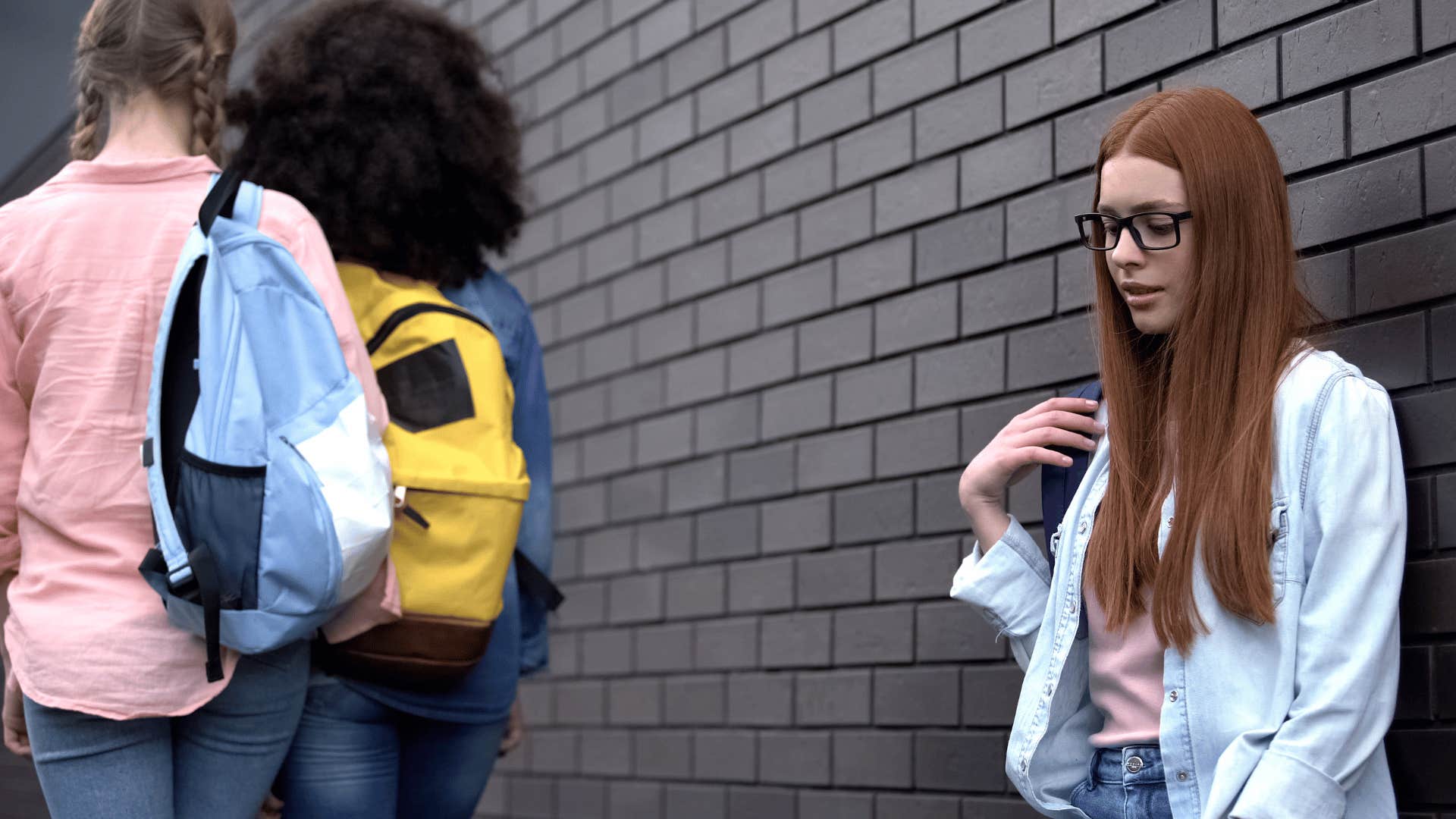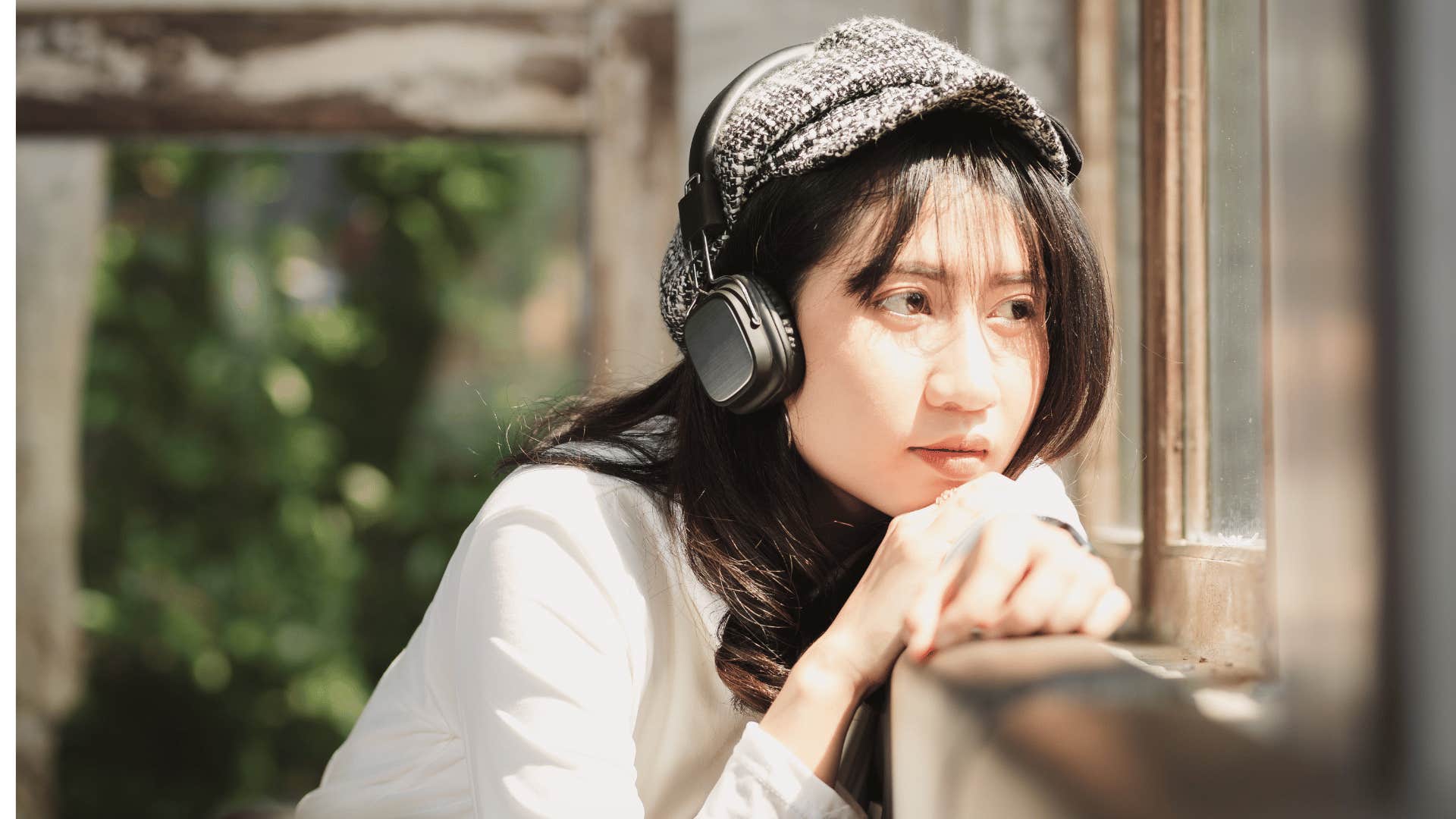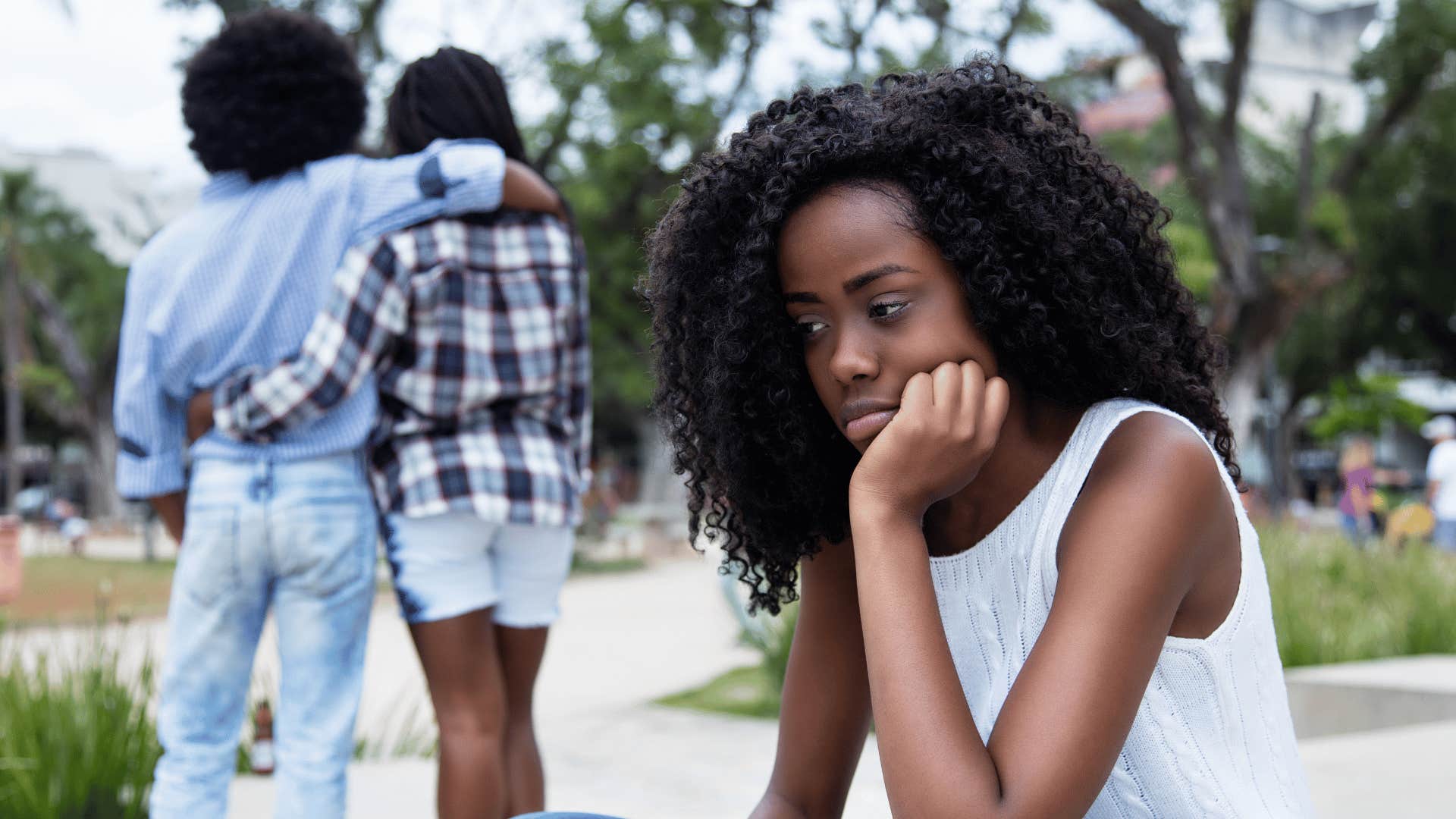9 Signs You Were Often Excluded As A Child And It's Affecting You Now
Childhood exclusion leads to many issues in adulthood.
 Nazarii Ortynskyi | Shutterstock
Nazarii Ortynskyi | Shutterstock Being left out never feels good, no matter what age you are. Exclusion causes hurt feelings in the moment and it can have lasting effects on people's social and emotional development.
Here are 9 signs you were often excluded as a child — and it's affecting you now
1. You experience anxiety
 PeopleImages.com - Yuri A. | Shutterstock
PeopleImages.com - Yuri A. | Shutterstock
According to a developmental-behavioral study from 2017, peer rejection is an all-encompassing term defining "the many behaviors used by children to exclude and hurt one another, including overt forms of control and exclusion and more subtle tactics, such as gossiping and spreading rumors."
The study reported that around 10 to 15% of kids are rejected by their peers, and almost half of those kids are still rejected a year later. Additionally, 30% of excluded children stay excluded after 4 years.
The tactics kids use to exclude others can be overt or less obvious, yet both can lead to emotional damage. Kids who internalize the experience of being excluded often develop depression and anxiety.
Being excluded makes it hard for kids to find their place amidst the various cliques at school. Their sense of social isolation can build on itself, to the point where even small interactions with peers feel fraught. It's not unusual for children who were excluded in school to have anxiety in adolescence and as adults.
Researchers from the study found that rejected children described themselves as more anxious than other kids, and that they expected to have more negative social outcomes.
2. You have trust issues
 Dima Berlin | Shutterstock
Dima Berlin | Shutterstock
Sadly, peer rejection isn't the only kind of exclusionary behavior that kids experience. Sometimes, children can be excluded by their own family. Parental rejection can come as a physical or an emotional distancing, and the effects can be devastating to people's development.
When parents don't comfort, encourage, or show empathy to their kids, those kids can grow into adults who are scared of getting close to other people, because they weren't given the support they needed when they were young.
People who were excluded by their families can grow up to be hyper-independent. Their traumatic childhoods lead them to believe they're better off alone, and that they don't need any help or affection from anyone else.
3. You have low self-esteem
 Motortion Films | Shutterstock
Motortion Films | Shutterstock
Even when exclusion isn't purposeful or intended to cause harm, it can ripple out, impacting someone's sense of self.
Our level of confidence is related to our self-efficacy, whether or not we see ourselves as capable and resilient. Yet it's also affected by our interpretation of how we're seen by other people.
If you were often excluded as a child or teenager, it's likely that you have a low sense of self-esteem. Not believing in yourself can make it hard to make friends and feel as though you belong. It can also affect your professional performance, in that you might doubt your abilities and the quality of your performance.
In contrast, a neuroscience study from 2015 found that people who are included by peers gain an increased level of confidence and sense of competence. The more accepted we feel, the more likely we are to see ourselves as worthy of love and care.
4. You feel lonely
 hugo_34 | Shutterstock
hugo_34 | Shutterstock
According to the same 2015 neuroscience study, kids who aren't socially accepted tend to feel lonelier than those who are. The study noted that even unintended exclusion can make people feel lonely.
Feeling excluded can arise from many social situations that go beyond the group dynamics of bullying. Someone might feel excluded after a divorce or breakup. People can feel excluded by their family members, which leads to a strong sense of isolation.
Loneliness has major consequences on our emotional and physical health as we grow older. In 2023, Surgeon General Dr. Vivek Murthy reported that being lonely can lead to major health problems. Not having strong social connections can increase the risk of heart disease, strokes, and dementia. Social isolation can also increase the risk of premorbidity by over 60%.
Feeling lonely is painful, but it isn't permanent. Making small efforts, like talking to the clerk at the grocery store or saying hi to our neighbors, can boost our sense of connection.
5. You sleep poorly
 fizkes | Shutterstock
fizkes | Shutterstock
According to an English study from "Psychological Medicine," being excluded can literally cause people to lose sleep. The study found that lonelier people were 24% more likely to be tired and have trouble concentrating during the day.
Researchers believe that at least one connection between sleep quality and loneliness has to do with people's stress response systems. They referred to past research positing that being lonely causes changes in cortisol, a stress hormone.
Professor Louise Arseneault, an author of the study, declared that "Diminished sleep quality is one of the many ways in which loneliness gets under the skin." She emphasized that negative thoughts and self-perceptions "can make loneliness a vicious cycle," which is one reason why getting into therapy can give people tools to stop their negative feedback loop from running on high.
6. You feel jealous of others
 Daniel M. Ernst | Shutterstock
Daniel M. Ernst | Shutterstock
Another indication that you were excluded as a child is that you tend to feel jealous of other people.
According to psychologist Dr. Lori Beth Bisbey, jealousy often arises when someone feels insecure. Feeling insecure is an entirely normal reaction to being excluded, because the act of being left out makes us question our value: Are we good enough? Are we loveable?
Dr. Bisbey shared that there are various ways to quell the bitter feeling of jealousy. Work on boosting your own confidence through affirmations, positive thinking, and recording everything you love about yourself. Practicing gratitude is another way to calm jealousy and focus on the good things we do have.
7. You tend to withdraw
 MAYA LAB | Shutterstock
MAYA LAB | Shutterstock
Oftentimes, being shy or introverted can make kids the target of exclusionary behavior. Their insularity tends to build on itself. They learn to withdraw from social situations to avoid being hurt.
The 2017 behavioral study noted that kids who experience peer rejection pull away from others over time, whether due to social anxiety or a low sense of self-worth. Kids who withdraw when faced with challenging situations are often adults who have an avoidant attachment style. They react to conflict by shutting down emotionally and distancing themselves from their partner.
8. You feel a lot of shame
 Perfect Wave | Shutterstock
Perfect Wave | Shutterstock
Shame is a complex yet deeply human emotion. Researchers from the 2017 behavioral study explained that rejection can cultivate shame. When someone feels judged as a person, they experience shame.
Being excluded by others makes us feel like there's something wrong with us, even though we all hold value.
9. You struggled academically
 Evgeny Atamanenko | Shutterstock
Evgeny Atamanenko | Shutterstock
A Canadian study titled "The Consequences of Childhood Peer Rejection" reported that kids who were excluded often struggled with academic performance as a result.
The study noted that kids who were rejected in kindergarten had trouble in school as they got older. Early peer rejection is also related to chronic absenteeism later on, along with less academic success in young adulthood.
While being excluded as a child can affect how you feel about yourself in adulthood, having a negative interpretation of your identity isn't written in stone. When people shift how they view themselves, they can gain a more positive outlook on life and how they fit into it.
Alexandra Blogier is a writer on YourTango's news and entertainment team. She covers social issues, pop culture analysis and all things to do with the entertainment industry.

